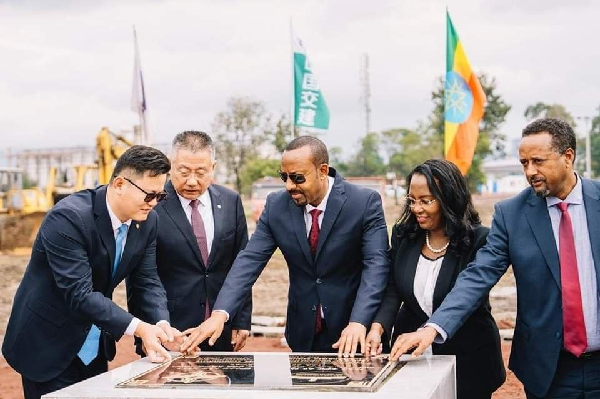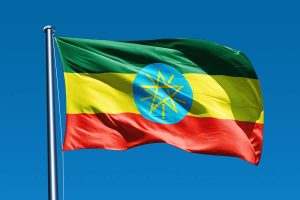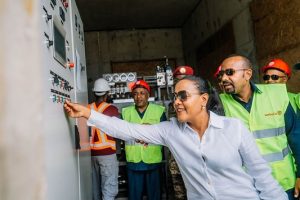
Ethiopia has been taking a list of measures to refurbish its infrastructural facilities while adding new ones. Having already put in place big and bold economic reforms, the country also faces various setbacks that need multitude of layers. To meet the growing demands of its burgeoning youthful population and unlock the untapped potentials of its abundant natural resource, the country is toiling to create jobs and allure investment.
And, in an effort to expedite economic growth and improve the livelihoods of the people, more investment and development projects are needed. From parks to bridges, the country is carrying out the construction of various infrastructural projects. From the capital to the far-flung of the nations, the government has been building lots of infrastructural facilities.
Currently, Addis is going through a dynamic turnaround that serves as a harbinger that the future bodes well for the city and the country as well. The Africa’s capital is undergoing a rapid transformation that is a sign of good things to come for both the city and the nation. Public parks and other facilities are being built as part of the corridor projects, which is now under way and will have a significant positive impact on the city and surrounding areas. In addition to endowing the city with a distinct appearance and allure, the building and enlargement of infrastructure projects reveal more about the aspirations of the nation.
The government is making every effort to come up with more projects since the city needs more initiatives that enhance the quality of life for its citizens. The incumbent has, in reality, been working really hard to advance the manufacturing and industry sectors as well to spur national growth.
The government has been investing in the creation of special economic zones across the nation in addition to other initiatives. In the past, the government established the Gada and Addis Tomorrow Special Economic Zones in the Addis Ababa and Oromia state, respectively. Economic zones facilitate corporate development and investment acceleration, which in turn drives the growth of manufacturing and industry sectors.
Due to their geographical demarcation, which includes a variety of typologies such as industrial parks, free ports, and urban business zones, these areas provide incentives for capital and commerce.
Free and Special Economic Zones facilitate business by offering a laxer regulatory framework and a range of incentives. Effectively administered zones can foster the development of the local workforce by facilitating the knowledge and skills transfer of outside investors. In light of the government’s recent emphasis on industry growth, economic zones will be essential to the process. Investor participation in the zones will also be contingent upon the large natural resources and the growing youth population.
The ongoing construction of the corridor projects public parks and other facilities has been in full swing bringing lofty dividends to the city and beyond. Besides giving a peculiar look and beauty to the city, the constructions and expansions of infrastructural projects foretell more about the country’s ambition.
With the city requiring more projects that improve the well-being of its residents, the government is doing its level best to come up with more projects. In fact, the incumbent has been making the utmost effort to promote manufacturing and industry sectors.
Economic Zones provide opportunities to cultivate business and expedite investments ultimately leading to the expansion of manufacturing and industry sectors. Special economic zones will serve as a major source of jobs for the country’s growing population while enticing foreign direct investment and facilitating trade.
Due to their geographical demarcation, which includes a variety of typologies such as industrial parks, free ports, and urban business zones, these areas provide incentives for capital and commerce.
Special Economic Zones will attract foreign direct investment, facilitate trade, and provide a significant source of jobs for the nation’s expanding population. After Gada is finished, it will become the second free trade area after Dire Dawa and be a component of the Lume Free Trade Zone. Prime Minister Abiy Ahmed began building the Addis Tomorrow Special Economic Zone in the city center last week.
The launching came as Addis Ababa City Administration and China Communications Construction Company (CCCC) entered an agreement for the construction of the special economic zone. It will be situated on 35 hectares of land is imperative to foster business and investment.
This is the start of our big dream of making Addis Ababa attractive as its name ‘New Flower’ refers to, and my gratitude goes to CCCC and the city administration for kicking start this project,” Abiy said.
According to the Prime Minister, the Addis Tomorrow Special Economic Zone will be connected to other economic areas whose constructions are underway in other parts of the capital through the ongoing Addis Ababa corridor development.
Abiy said the economic zone is part of the government’s commitment to transforming Addis Ababa into one of the most beautiful cities in the world by building smart communities with various facilities, including residential houses, shopping malls, hotels, and recreational centers.
In her address, Addis Ababa Mayor Adanech Abiebie stated that the economic zone is a huge project like building a new city within a city.
According to Mayor Adanech, the project includes large malls, residential apartments, offices, educational institutions, health facilities, and extensive recreational and water bodies as well as sports centers.
“The economic zone will give our city a new look, enhance its international competitiveness, become an additional source of beauty, create ample jobs for residents, facilitate trade, become a large international shopping center, and include infrastructure that will provide social services,” she remarked.
Free and Special Economic areas ease business by providing a more relaxed regulatory environment and various incentives. Well-managed zones also help build the capabilities of the local workforce as outside investors share expertise and know-how. Now that the government is paying special attention to the expansion of industries, economic zones will prove vital along the way. The burgeoning youth population and the vast natural resources will also be vital ingredients needed by investors to take part in the zones.
Building Special Economic Zones, however, is not an end; it requires recruiting vibrant manufacturers and businesses. In this regard, the government needs to encourage small and medium enterprises to grow in capital and production.
If timely and efficiently completed, the economic zones with the right policies and infrastructure can boost economic development and change the livelihood of the population.
BY STAFF REPORTER
THE ETHIOPIAN HERALD WEDNESDAY 21AUGUST 2024





